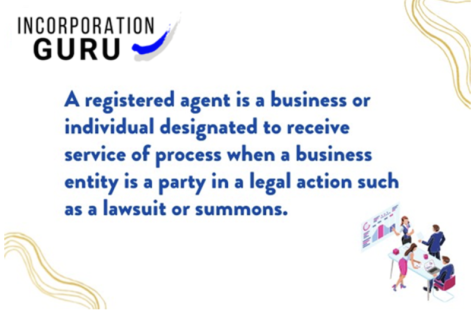Comparing The Best U.S. States For Business Formation
Content provided by legal writers
The U.S. Census Bureau recently announced that they are “projecting 31,931 new business startups with payroll tax liabilities will form within 4 quarters of application from all the business applications filed during November 2021.” The results show us that business formation is currently at an all-time high and that despite the global pandemic and the country’s economic state, entrepreneurs are willing to take the risk to start up new ventures.
The process of starting up a new business can be rather complicated. With factors like filing paperwork, understanding the legalities, and deciding on a business structure all play a huge role in the process. But one factor that sometimes gets overlooked is deciding on the state in which one should register their business. Many people naturally assume that this should be done in their home state. However, when you take into consideration the fact that you do not necessarily need to register your business in the same state as your brick and mortar location, you open your business up to a vast amount of new possibilities.
Why is it important to choose the right state to register your business?
The location in which you decide on registering your business affects a variety of factors such as:
- The taxation laws that you will be governed by
- How your privacy is managed and the amount of information that is made public
- Asset and personal liability laws
- The monetary amount of state fees that you will need to pay
Your location for registration will ultimately be :
- the address that you will utilize when you are completing your tax filings
- The location at which you shall receive documentation from the state’s government agencies
- The address that you will have to use when applying for your business’s bank account.
The Best U.S States For Business Formation
When looking to start an LLC, Corporation, or any other business entity for that matter it is recommended that entrepreneurs utilize the services of a business formation company as they help streamline the process and ensure that all paperwork and legal issues are handled correctly.

Copyright: Incorporation Guru
1. Wyoming
The state is extremely attractive to entrepreneurs due to the fact that there is a 0% corporate and individual income tax charge. Wyoming also has one of the lowest unemployment rates and the sales and property tax rates prove beneficial for new business owners as well.
2. Alaska
Alaska may not be the first or even second state to immediately come to mind, however, the jurisdiction is excellent for LLC formation as it has an overall favorable business climate. Corporate tax rates are below 10% and there are no individual income tax charges – although some municipalities have been noted to impose a sales tax. Unemployment is just slightly higher than that of Wyoming, however, it is still significantly low.
3. South Dakota
The state of South Dakota has the lowest unemployment rate from the rest of the states on this list. With a zero percent corporate and income tax as well as low effective property and sales taxation, the state is a good alternative for business registration.
4. Florida
The sunshine state has a corporate and sales taxation of 5.5% and 6% respectively. Unemployment is the second-lowest on this list and has an average effective property tax of 1.02%. For those who are planning on possibly moving to their registered state, Florida is noted for having a better and safer standard of living than most states in the U.S.
5. Nevada
The hometown of Las Vegas is favored for its 0% corporate tax and individual income tax. The state does charge a sales tax that can go over 8% depending on the taxes that are imposed by the state’s local counties or cities.
Final Thoughts
When starting a business it is important for entrepreneurs to look for innovative and unique ideas to accelerate their growth. Whilst deciding on a business name and entity structure are key factors, the state in which you choose to register will ultimately decide on how your business should be governed and the type of privacy and protection you will receive. Look for a state that best suits your individual needs and requirements instead of just settling on your home state.
This content is provided by an independent source for informational purposes only and does not contain legal advice. Consult an attorney or financial advisor when making decisions. This information is provided by legal writers and does not reflect the views or opinions of The Daily Sundial editorial staff.









